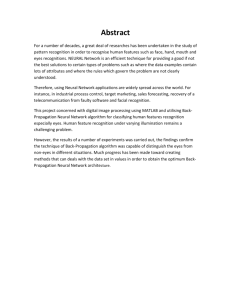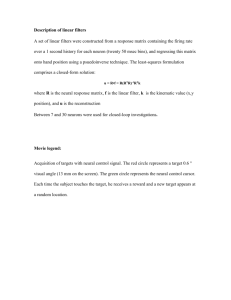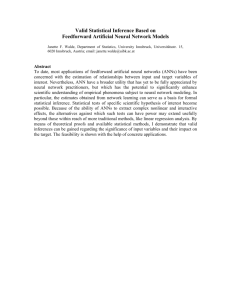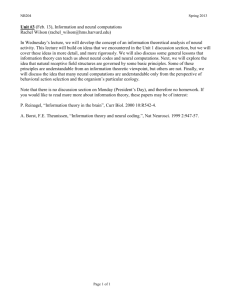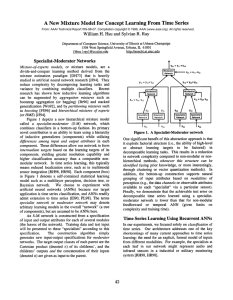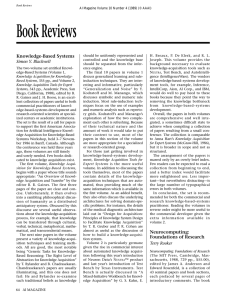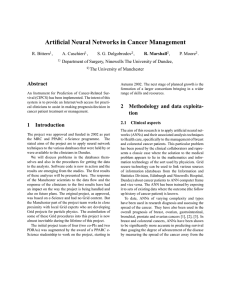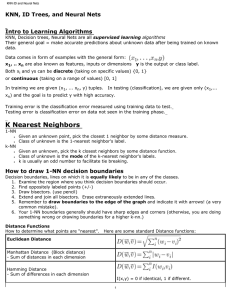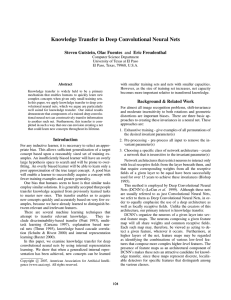Document 11909895
advertisement
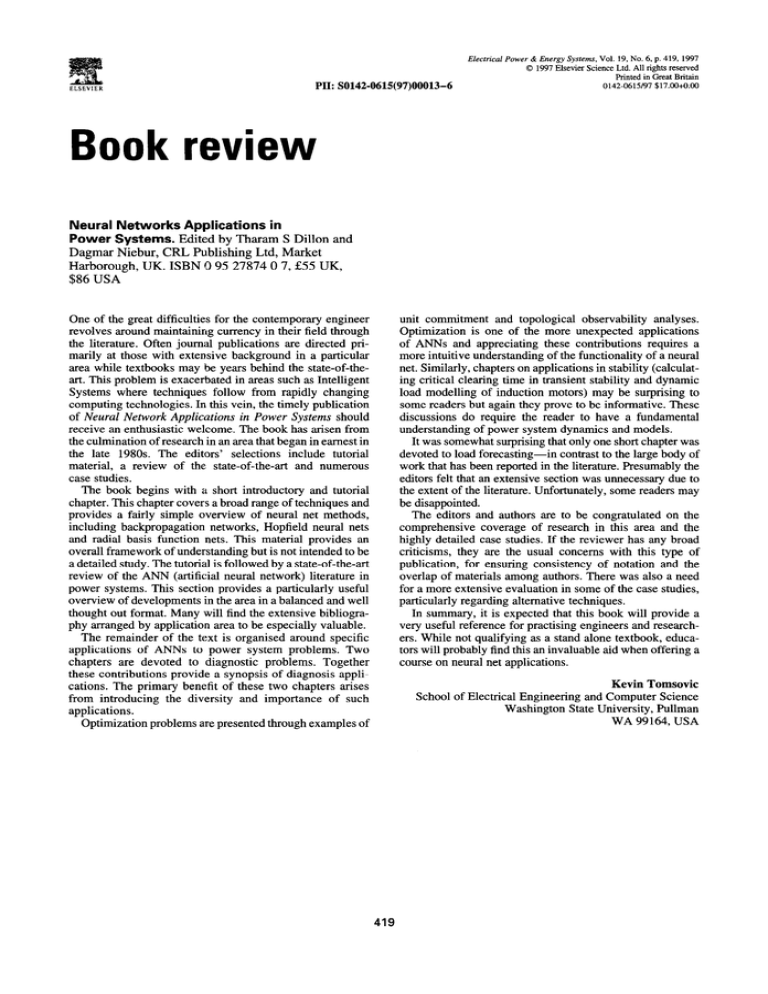
Elecfrical PII: SO142-0615(97)00013-6 Power & Energy Systems, Vol. 19, No. 6, p. 419, 1997 0 1997 Elsevier Science Ltd. All rights reserved Printed in Great Britain 0142.0615/97 $17.00+0.00 Book review Neural Networks Applications in Power Systems. Edited by l&tram S Dillon and Dagmar Niebur, CRL F’ublishing Ltd, Market Harborough, UK. ISBN 0 95 27874 0 7,255 UK, $86 USA unit commitment and topological observability analyses. Optimization is one of the more unexpected applications of ANNs and appreciating these contributions requires a more intuitive understanding of the functionality of a neural net. Similarly, chapters on applications in stability (calculating critical clearing time in transient stability and dynamic load modelling of induction motors) may be surprising to some readers but again they prove to be informative. These discussions do require the reader to have a fundamental understanding of power system dynamics and models. It was somewhat surprising that only one short chapter was devoted to load forecasting-in contrast to the large body of work that has been reported in the literature. Presumably the editors felt that an extensive section was unnecessary due to the extent of the literature. Unfortunately, some readers may be disappointed. The editors and authors are to be congratulated on the comprehensive coverage of research in this area and the highly detailed case studies. If the reviewer has any broad criticisms, they are the usual concerns with this type of publication, for ensuring consistency of notation and the overlap of materials among authors. There was also a need for a more extensive evaluation in some of the case studies, particularly regarding alternative techniques. In summary, it is expected that this book will provide a very useful reference for practising engineers and researchers. While not qualifying as a stand alone textbook, educators will probably find this an invaluable aid when offering a course on neural net applications. One of the great difficulties for the contemporary engineer revolves around maintaining currency in their field through the literature. Often journal publications are directed primarily at those with extensive background in a particular area while textbooks may be years behind the state-of-theart. This problem is exacerbated in areas such as Intelligent Systems where techniques follow from rapidly changing computing technologies. In this vein, the timely publication of Neural Network Applications in Power Systems should receive an enthusiastic welcome. The book has arisen from the culmination of research in an area that began in earnest in the late 1980s. The editors’ selections include tutorial material, a review of the state-of-the-art and numerous case studies. The book begins with a short introductory and tutorial chapter. This chapter covers a broad range of techniques and provides a fairly simple overview of neural net methods, including backpropagation networks, Hopfield neural nets and radial basis function nets. This material provides an overall framework of understanding but is not intended to be a detailed study. The tutorial is followed by a state-of-the-art review of the ANN (artificial neural network) literature in power systems. This section provides a particularly useful overview of developments in the area in a balanced and well thought out format. Many will find the extensive bibliography arranged by application area to be especially valuable. The remainder of the text is organised around specific applications of ANNs to power system problems. Two chapters are devoted to diagnostic problems. Together these contributions provide a synopsis of diagnosis applications. The primary benefit of these two chapters arises from introducing the diversity and importance of such applications. Optimization problems are presented through examples of Kevin Tomsovic School of Electrical Engineering and Computer Science Washington State University, Pullman WA 99164, USA 419

